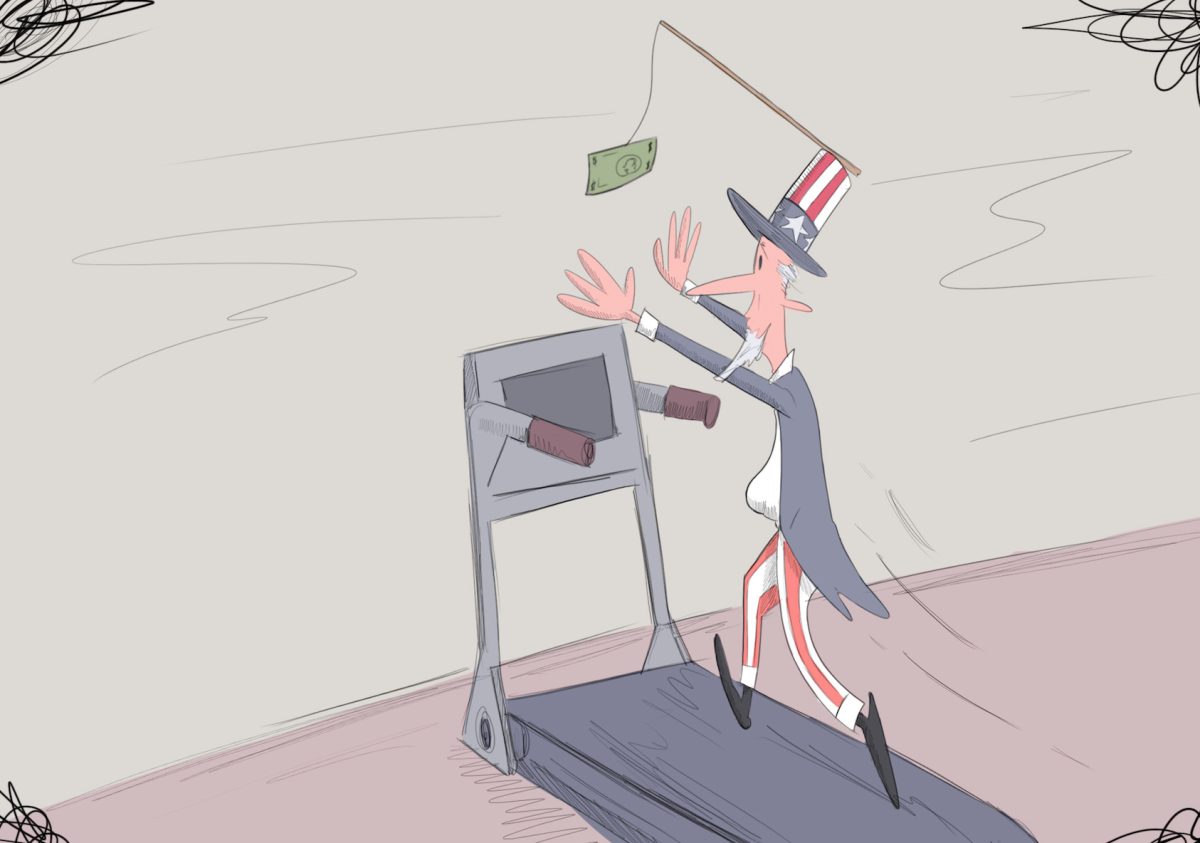America has an addiction problem on several levels. We’re addicted to iPhones, fast food and medications. One of the most harmful addictions, however, is our obsession with “the grind.” Our iPhone alarms wake us at 6 a.m. We go through the drive-thru at McDonald’s if we don’t have time to make breakfast. We pop an Adderall if a doctor decided we have an attention-deficit disorder. All in the name of productivity.
We have one of the worst mental health levels in the world. In 2016, the Institute for Health Metrics and Evaluation estimated that 21.6 percent of Americans have a mental illness or substance abuse problem.
In 2015, Americans worked an average of 33.6 hours per week and contributed $68.3 to our GDP per hour, according to the Organisation for Economic Co-Operation Development. This statistic puts America as the fifth-most productive country, behind Luxembourg, Ireland, Norway and Belgium. Workers in those four countries work up to six hours less than American workers on average per week. Their negative mental health levels are also all below 20%. It seems that hours worked might affect mental well-being, while hours worked and productivity aren’t entirely related.
An overworked body and mind often results in chronic stress, which is linked to the six leading causes of death, according to the American Psychological Association. Not only is stress detrimental to your mental health, but it can also affect your blood pressure and autoimmune system and increase your chances of a stroke or heart attack, among other potential problems.
This spring semester has been one of the most challenging periods of my life. My mental and physical health has been far too poor for my comfort. I can’t sleep many nights due to anxiety, and I caught the flu and three stomach viruses since January. When I consider why, I quickly realize that I’m working much more than I ever have. I’m only taking 12 hours of classes, but that amounts to at least another 12 hours of work outside the classroom.
I also write for two publications and work at a restaurant anywhere from 20 to 35 hours in a typical week. I’m in the midst of figuring out my next step after graduation. I’m doing all this while somehow maintaining a social life and time for hobbies, which hasn’t left me in the best condition. This is a reflection of both poor personal choices and an unhealthy overwork culture.
Most American employers offer only about two weeks of paid vacation time, whereas Sweden offers its workers up to five. The U.S. is the only country without a federally guaranteed paid parental leave option. Americans also often find themselves eating lunch at their desks while continuing to work and don’t step away for a break. Many offices in Sweden, on the other hand, practice a “fika,” an extended break in the morning and afternoon.
Americans tend to bring their work home, too. We’ll answer emails at all hours of the night and on weekends. France recently passed a law requiring larger companies to mandate when their employees aren’t allowed to send emails between certain hours.
Achieving the American Dream surely requires hard work and dedication, but at what cost? Your mental and physical well-being are just as integral to success as the figure on your bank statement. We’re conditioned to always be “on the grind.” We always have to be making the next step and tackling the next goal. That grind, however, can all too often result in toxic productivity.
James Smith is a 22-year-old mass communication senior from Grand Coteau, Louisiana.
Opinion: American dedication to ‘the grind’ promotes toxic productivity
By James Smith
April 3, 2019
cartoon







